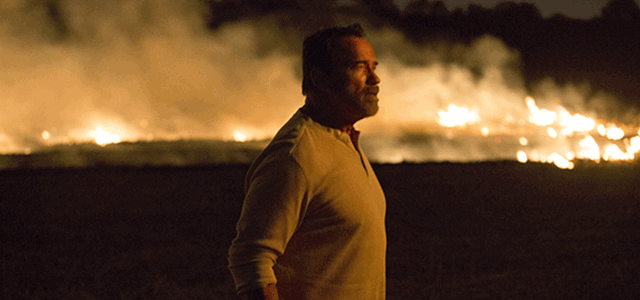
Maggie is an altogether more emotional twist on the zombie movie, starring Arnold Schwarzenegger and Abigail Breslin as a father-daughter duo on the verge of being torn apart by a devastating virus.
In part two of our exclusive behind the scenes interview, Maggie director Henry Hobson discusses the enduring appeal of the zombie film – and what tools he'd need to survive a terrifying undead apocalypse...
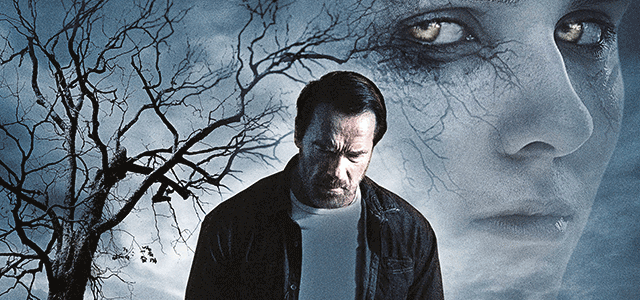
You often hear nowadays that actors playing zombies are sent to ‘zombie schools’ in order to learn how to act like a member of the undead. Did you employ any such methods in this film?
Actually, no. In the five years it took for Maggie to come together, various zombie projects like The Walking Dead have entered the popular consciousness that play around with the notions of the genre. However, I wanted the original, slow-moving zombies from days of old.
I also wanted to explore the idea that where you’re bitten is the centrepoint of the infection, essentially ground zero. Maggie’s infection stems from her arm and then spreads across the left side of her body. I think that’s a somewhat more ‘real’ version of a zombie, it’s like a communicable disease that spreads slowly. I wanted something that played into the physiology of humans.
So to answer your question, no zombie school, it was more a case of looking at other projects, picking all the best pieces and creating our own unique version.
Do you think the reason the genre continues to resonate with audiences and filmmakers is because, as you say, it deals with physiology, identity and biology?
Yeah, well if you compare zombies to supernatural beings like werewolves and so on, they’re much more relatable. Nothing is more terrifying than something you can believe in. With zombies, there’s an innate human fear of people coming back from the dead, which goes back to very early Paganistic rituals. And we’re also seeing in the news these terrifying reports of communicable diseases, for which there is no cure.
There’s something terrifying about the idea, even when the actual level of horror is dialled down. The premise of Maggie comes in the question: what would you do? How do you deal with a loved one suffering with the equivalent of a terminal disease? And even worse, this terminal disease is not only incurable, it will also eventually lead to the victim becoming deadly. They will harm you if you don’t take the right precautions.
So there’s a prolonged aspect to it, which we’re not necessarily used to within this genre. We’re used to seeing it dealt with swiftly over the course of, at best, a few minutes, like in Shaun of the Dead for instance. There’s something very visceral and relatable about zombies that eclipses other genres and that’s why it’ll continue for sure.
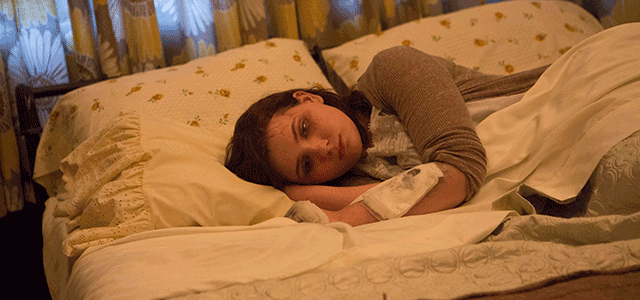
It’s the thin line between life and death, isn’t it? And when emotions come into it, the situation becomes even more horrifying.
That’s exactly it, you’ve hit the nail on the head. Maggie is a study of the thin line between life and death. When does she stop becoming human? When does she start becoming animalistic?
The desire was to paint a portrait of that change and although it’s a slow, dramatic premise that may not appeal to all, it certainly poses the question: how would I deal with it? How would I deal with my neighbours, someone in my community? All the best zombie films are born of social commentary, from the early zombie films that dealt with race to later movies that grapple with concepts of immigration and so on.
So, the ‘and finally’ question – what are the essential items you personally would need to survive a zombie outbreak?
A shit-ton of petrol and a very fast car! My aim would be to get as far away as possible, to head up to the Highlands of Scotland with a fast car and barricade myself in. I would be wholly inadequate at dealing with a zombie apocalypse. I would perish at the first hurdle, I fear.
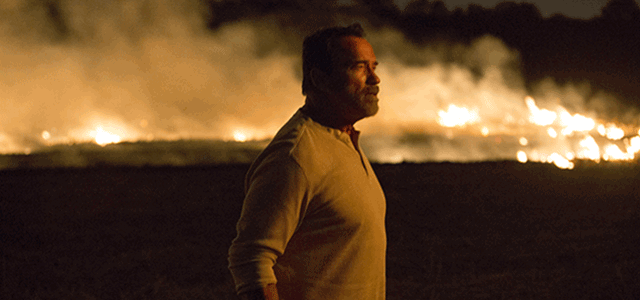
Keen to get your zombie fix? Then click here to book your tickets for Maggie, which opens in Cineworld this Friday.
How would you survive the zomb-pocalypse? Tweet us your survival tips @Cineworld.

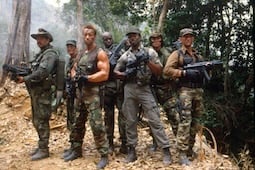

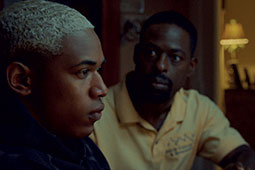
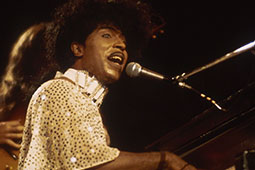
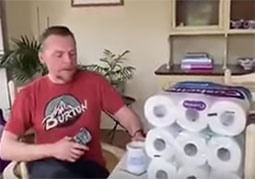



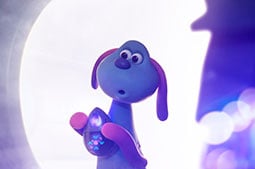


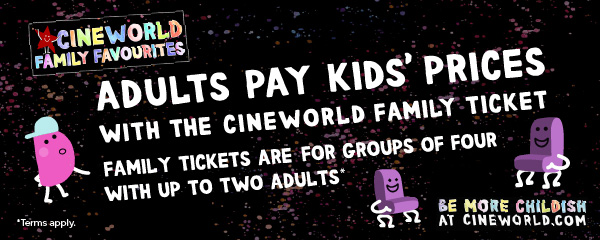

.jpg)
.png)



